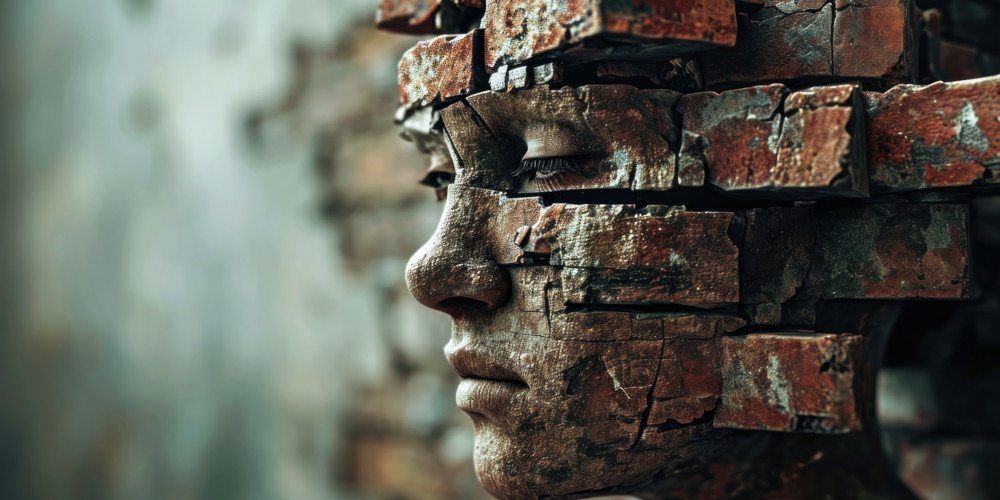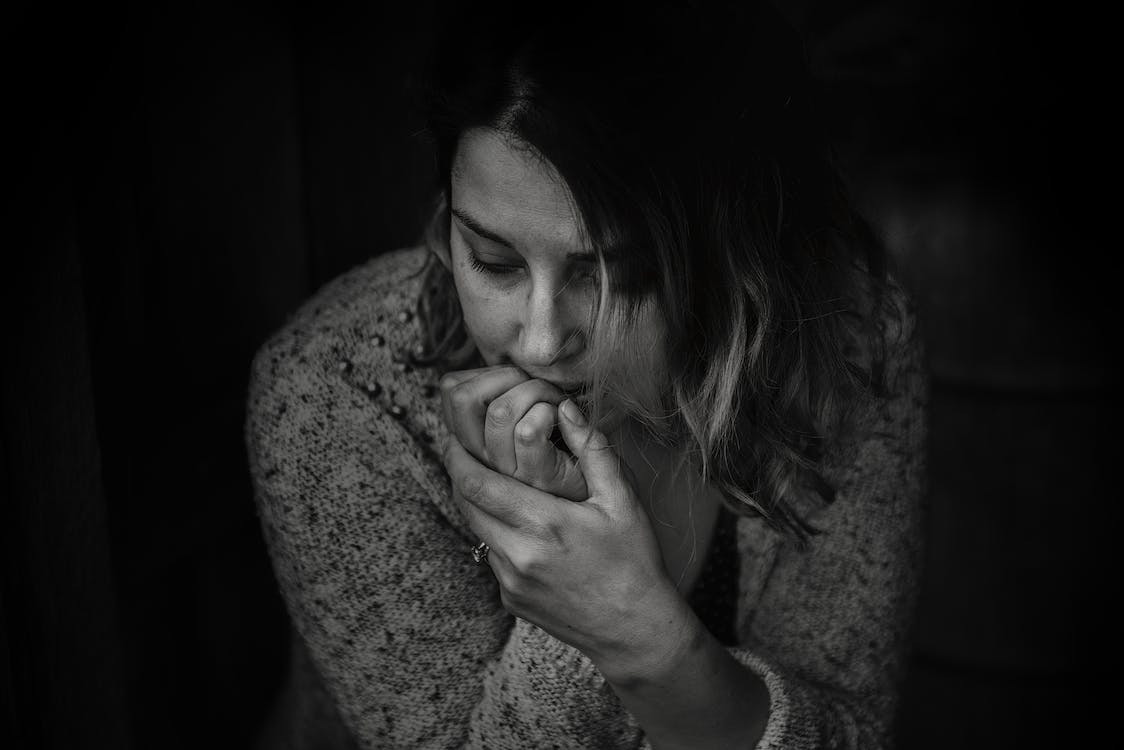No one walks into counselling because life is going well. They walk in because something inside them no longer matches the outside story they’re telling, and that mismatch is unbearable. That’s cognitive dissonance: the tension between what you believe and how you behave.
In addiction, that tension becomes a way of life. “I want to stop using” coexists with “I’ll just do it one more time.” “I love my family” sits beside “I keep lying to them.” “I hate myself for what I do” sits right next to “I’ll do it again tomorrow.” This constant contradiction eats away at you from the inside, until the only thing that numbs it is the very thing that caused it.
Counselling, then, is not just about talking, it’s about untangling this internal war. It’s about making the unbearable make sense, and learning to live without that split between who you are and who you pretend to be.
The Addict’s Double Life
Every addict lives two lives, the one people see, and the one they hide. The first is managed with excuses, charm, and control. The second is chaos, shame, and self-loathing. Holding those two realities together requires constant mental gymnastics, convincing yourself you’re fine while knowing deep down you’re not.
That’s cognitive dissonance in motion. It’s the mental friction that happens when your actions betray your values. It’s why so many addicts describe their lives as exhausting, not just physically, but mentally. You’re always arguing with yourself.
You tell yourself, “I’ll quit after this weekend.” You mean it when you say it. Then the craving hits, and suddenly your brain rewrites the story, “I’ve had a hard week, I deserve this.” You use again, feel guilty again, and the cycle resets.
You’re not lying to the world as much as you’re lying to yourself, because believing the truth would demand change, and change feels terrifying.
The Counsellor’s Job
Good counselling doesn’t start with advice. It starts with interruption. A skilled counsellor doesn’t let you settle into your rehearsed story, the one you’ve told family, friends, even yourself a hundred times. They listen, then quietly ask the question that makes the whole story wobble.
You say, “I only use when I’m stressed.” They ask, “So why did you use last week when things were going well?”
You say, “I’m not hurting anyone.” They ask, “Then why do you avoid your mother’s calls?”
They don’t argue. They don’t judge. They just hold the contradiction up like a mirror until you see it clearly.
That’s the art of counselling, creating discomfort that leads to honesty. Because until you feel that internal friction, you won’t change. Addiction thrives in comfort. Growth begins in unease.

Serious mental illness changes the rules of a household, and schizophrenia is one of the…

You may have come across the common misconception that only certain types of people become…

Rehab is often approached as a solution that fixes an individual problem. Someone goes away,…
Why Discomfort Is the Point
In early recovery, discomfort feels like failure. You think therapy should make you feel better, calmer, lighter. But real counselling often feels worse before it feels better. That’s not a bad sign, it’s a necessary one. Every lie your addiction built has to be dismantled piece by piece. Each session pulls on a thread, the trauma you buried, the anger you swallowed, the guilt you never named. When those truths surface, the brain resists. It tells you to run, to quit, to go numb again.
But here’s the paradox, the more uncomfortable counselling feels, the closer you are to real alignment. Cognitive dissonance begins to shrink the moment you stop running from your own truth.
The discomfort isn’t punishment, it’s progress. It means your behaviour and your beliefs are starting to collide, and that collision is the start of healing.
The War Between the Old Self and the New
Counselling doesn’t create a new person, it introduces you to the one you’ve been avoiding. That meeting is not always pleasant.
In addiction, you survive by building an alter ego, the version of yourself who can lie, hide, manipulate, and escape. That version keeps you alive when pain feels unbearable. But once you enter recovery, that same version becomes a liability. Counselling forces the two selves, the survivor and the human underneath, to meet. The survivor says, “I can’t live without this.” The human says, “I can’t live like this anymore.” The space between those voices is cognitive dissonance in its rawest form.
The counsellor’s role is to mediate that conversation until one truth wins, the one that aligns with life, not destruction.
It’s not about rejecting the “old you.” It’s about understanding why that self existed in the first place. The lies, the manipulation, the chaos, they all made sense once. But now they don’t. Counselling helps you honour the survival instinct without continuing the self-destruction.
The Emotional Tug-of-War
Cognitive dissonance isn’t just a thought problem; it’s a feeling problem. It shows up in the body, anxiety, irritability, guilt, numbness. You’re not imagining it; your brain is fighting for coherence. Addiction trains you to avoid these sensations. If you feel guilt, you drink. If you feel anxiety, you use. If you feel shame, you disappear. Therapy reverses that pattern. It asks you to stay in the feeling without escaping it. That’s the hardest work of all.
The counsellor becomes your anchor in that storm, not to make it stop, but to stop you from running. They help you tolerate the discomfort until it no longer controls you. Over time, the brain learns something radical, you can survive emotion.
That’s when cognitive dissonance starts losing power. The behaviour (using) and the belief (I want to get better) begin to align. You start acting in ways that match who you want to be, not who you were forced to be.
Why the Brain Fights Change
Understanding dissonance also means understanding the addicted brain. Addiction rewires the mind to prioritise relief over reality. When you try to change, the brain panics, it’s losing its favourite coping tool. So, when counselling challenges your patterns, it feels wrong. The brain says, “This doesn’t feel safe.” But “safe” isn’t the same as “healthy.” Safety, for the addicted mind, is chaos, it’s predictable pain.
Counselling rewires that safety map. It teaches the brain to associate peace with truth, not avoidance. That’s why therapy feels like war at first, your brain is literally unlearning how to survive.
The Role of Honesty, and Why It Hurts So Much
Recovery isn’t about confession, it’s about truth. They’re not the same thing. Confession is saying what you did. Truth is understanding why you did it. Addicts often believe they’re being honest once they admit the facts, “Yes, I used. Yes, I lied.” But counselling pushes deeper, What pain were you protecting? What belief were you defending?
That’s the uncomfortable truth. Most addicts don’t use because they want to die. They use because they can’t bear to feel alive in the state they’re in. When they start facing that reality, the guilt is immense, but so is the potential for change.
The counsellor helps carry that truth until you can hold it yourself.
When Recovery Confuses Everyone
Families often mistake cognitive dissonance for manipulation. They see their loved one saying one thing and doing another, and assume they don’t care. But what looks like deceit is often internal chaos. Your loved one isn’t trying to hurt you, they’re trying to survive the collision inside their own head. One part wants to heal; another part fears what life will look like without their crutch.
Counselling helps bridge that gap, not just for the addict, but for the family too. It teaches everyone involved to respond to behaviour with understanding, not accusation. When a family learns to name the dissonance instead of reacting to it, the dynamic changes.
Instead of “Why are you doing this to us?” it becomes “What’s the conflict you can’t live with right now?” That shift opens doors that anger keeps locked.
Counselling as Alignment Work
In the end, counselling isn’t about fixing, it’s about aligning. It helps people make peace between their thoughts, feelings, and actions. When you stop using substances to numb that inner tension, the goal isn’t just sobriety, it’s congruence. It’s being the same person in private that you are in public. It’s acting in a way that matches what you say you believe.
That’s what freedom looks like. Not perfection, not constant happiness, just internal consistency. Cognitive dissonance thrives in secrecy. Counselling kills it with honesty.
The Quiet Victory
There’s a moment in every good counselling process where something shifts. It’s not loud. It’s not dramatic. It’s when you realise you no longer need to defend the person you used to be. You can talk about your past without flinching. You can look at your reflection without shame. That’s what it means to make the uncomfortable make sense. It’s not about erasing your contradictions, it’s about understanding them. It’s learning that the war between what you feel and what you do doesn’t define you anymore.
Counselling doesn’t give you peace, it teaches you how to live without the noise. Recovery doesn’t end when the drugs stop. It ends when your behaviour, beliefs, and identity stop arguing with each other. That’s what counselling does, it closes the gap between who you were, who you are, and who you want to be.
It’s uncomfortable. It’s confronting. It’s slow. But it’s also the most honest work you’ll ever do. Because once you stop running from that mirror, you stop running from yourself.
And that’s when recovery truly begins.



